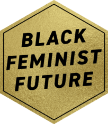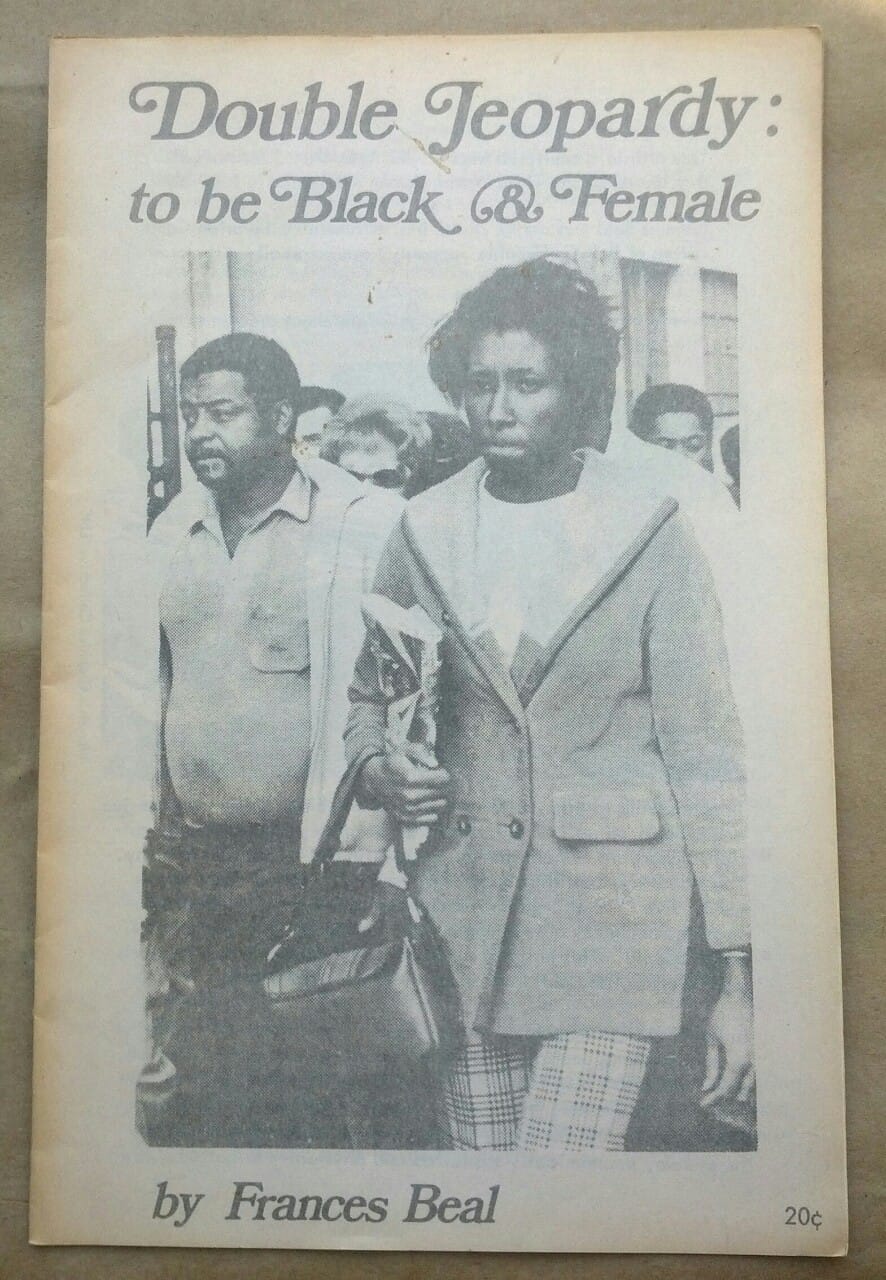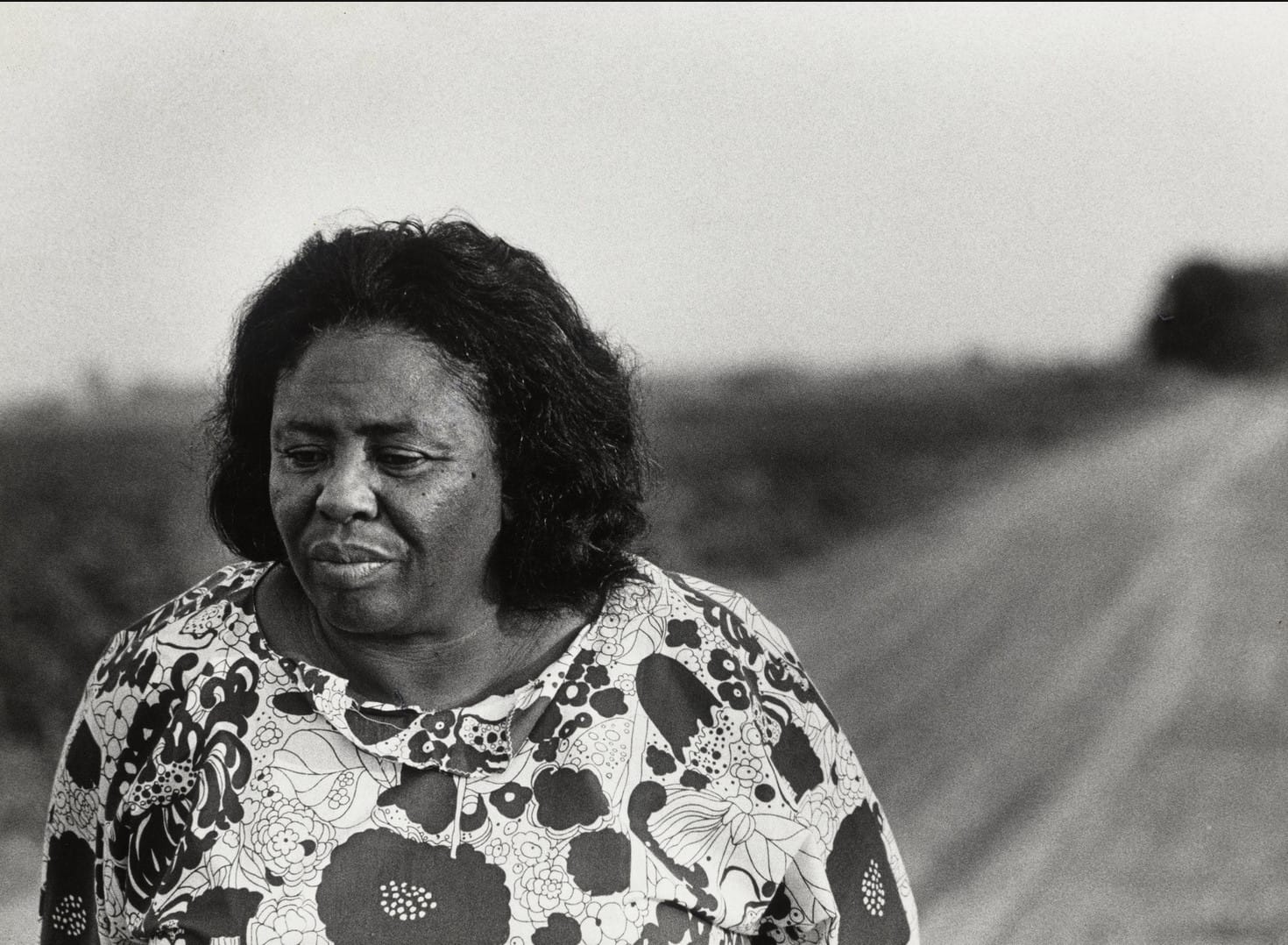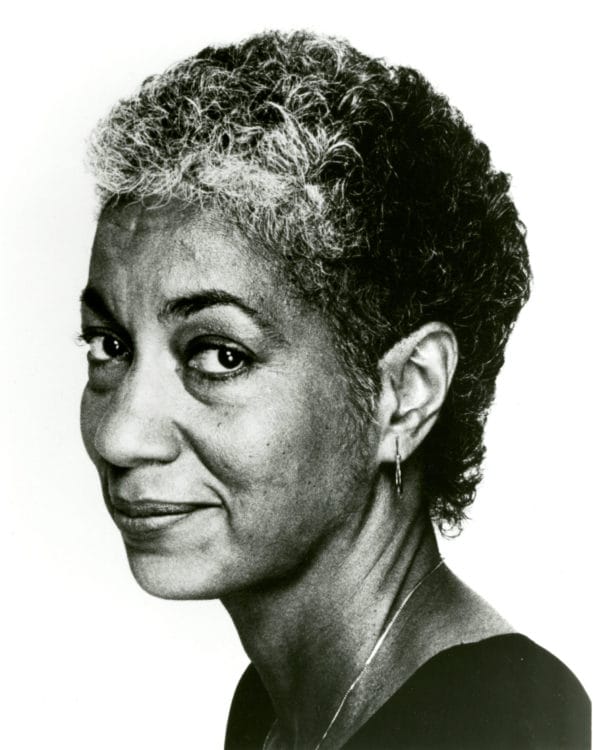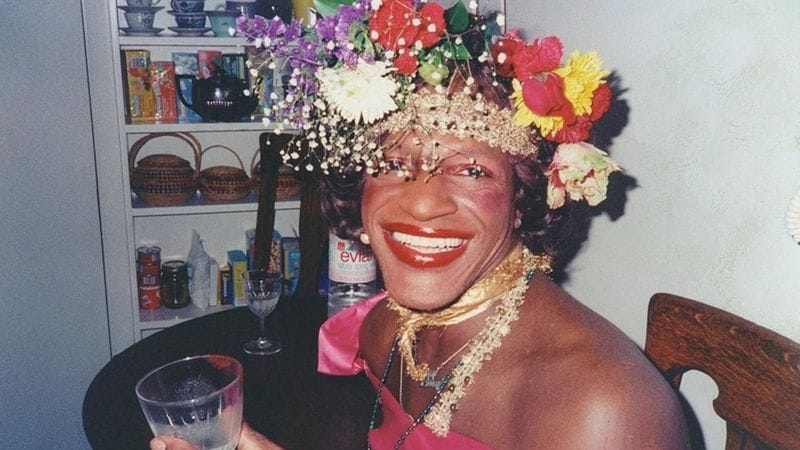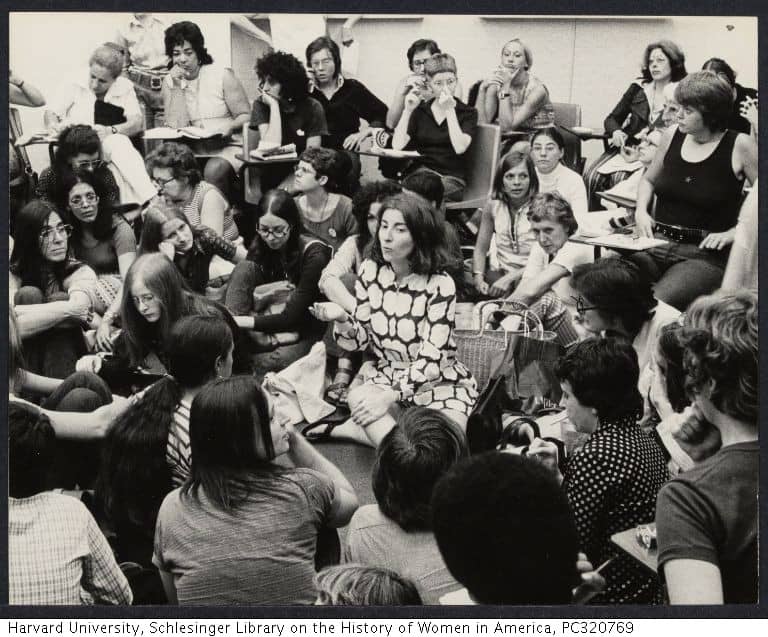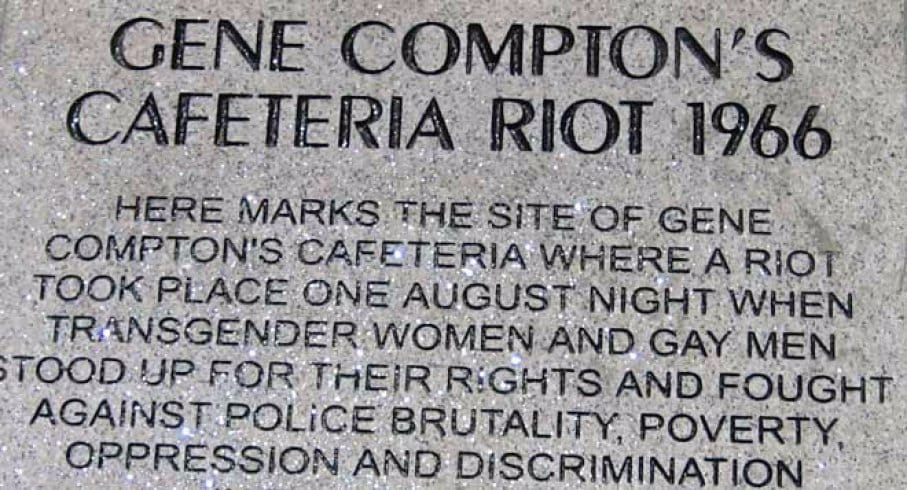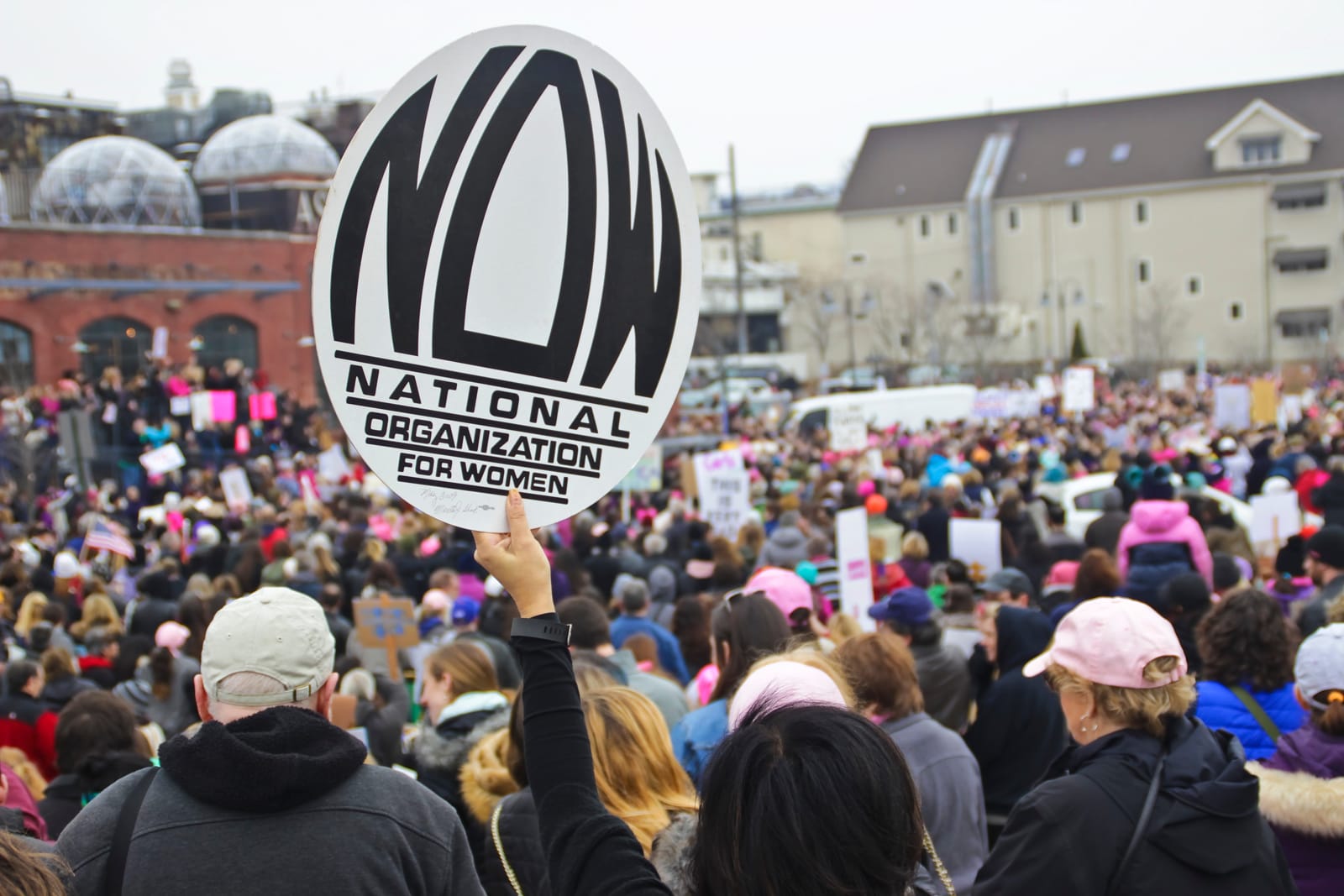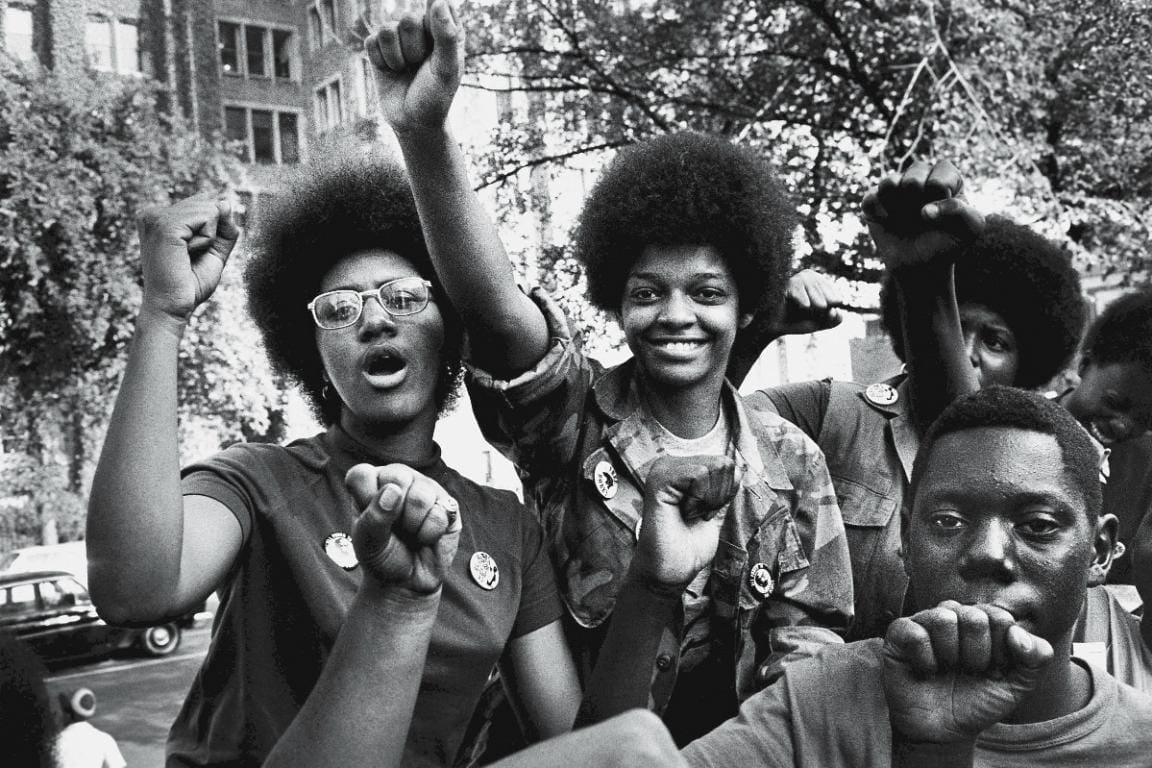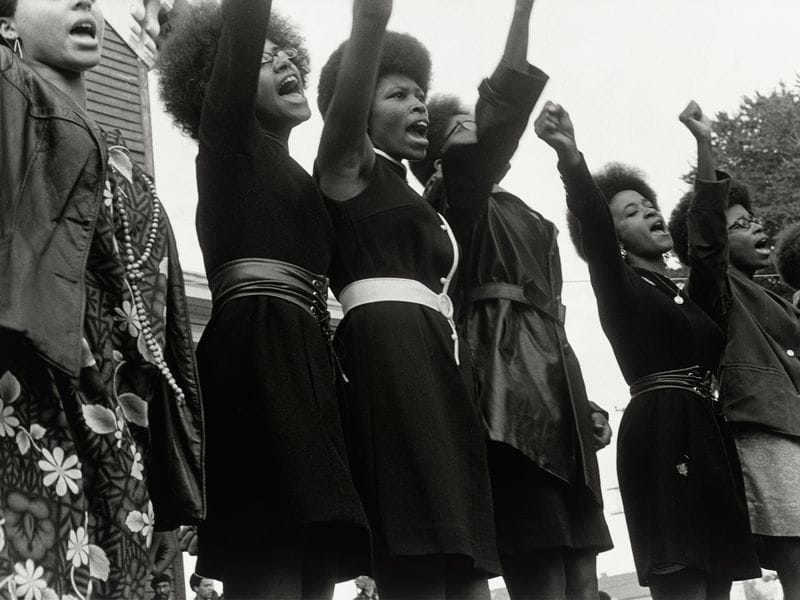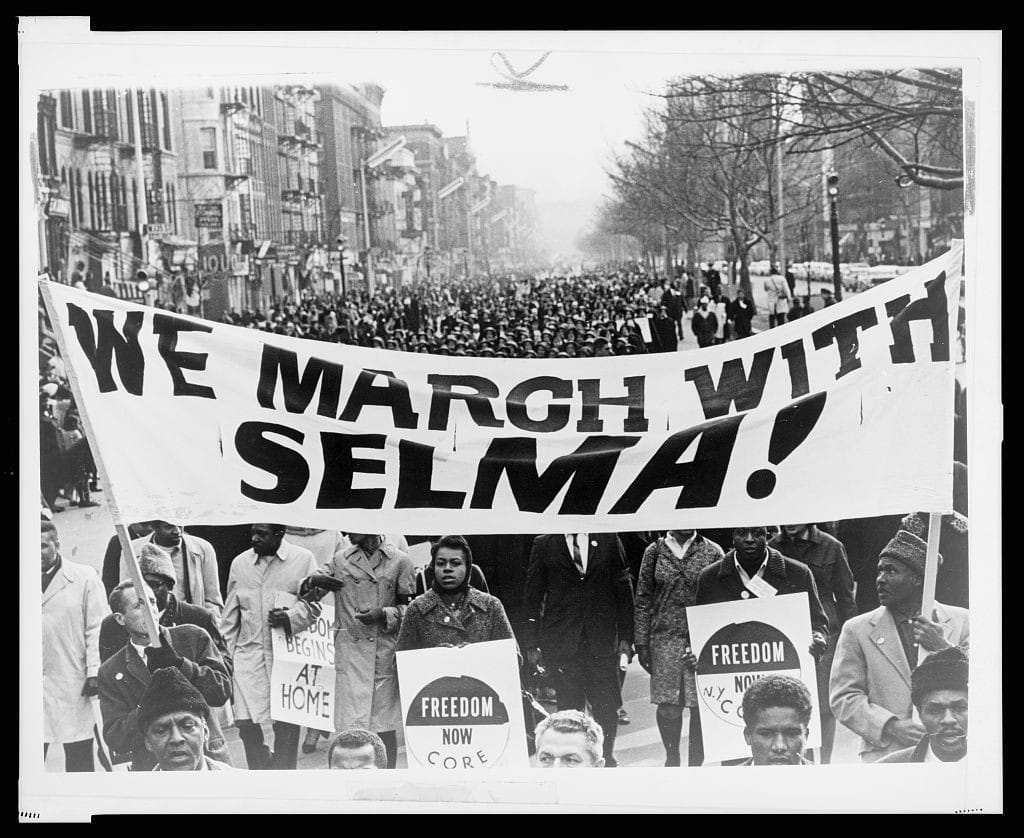Francis M. Beal wrote this pamphlet in 1969 to examine how Black women experience racism and sexism simultaneously. Beal discusses a variety of topics, including the forced sterilization (“surgical genocide”) of Black people and capitalism’s role in damaging the relationship between Black men and women. Beal calls for solidarity between the women’s liberation movement and the Black liberation movement, and states that both must be anti-capitalist and anti-imperialist.
Author: developer
Freedom Farm
In 1969, Fannie Lou Hamer secured 40 acres of land in the Mississippi Delta and created Freedom Farm. The goal of Freedom Farm was to address food insecurity and extreme poverty. Hamer started off the project by providing 50 pigs for communal use. Any family could look after a pig until it produced children, and then they would donate the litters to other families in need. It is said that by 1973, approximately 900 families benefited from this program alone.
June Jordan
June Jordan (1936–2002) was a Jamaican American poet, essayist, playwright, teacher, and activist. She produced an abundance of writing throughout her career, including 27 volumes of poems, essays, libretti, and children’s books. Her strong commitment to human rights and activism is reflected in her writing, which centers gender, race, sexual freedom, and representation.
Marsha P. Johnson
Marsha P. Johnson (1945–1992) was an activist, self-identified drag queen, performer, and survivor. She was a prominent figure in the Stonewall uprising of 1969. Marsha went by “BLACK Marsha” before settling on Marsha P. Johnson. The P stood for “Pay it no mind,” which is what Marsha would say in response to questions about her gender.
Consciousness Raising
In the context of 1960s and 70s feminism, consciousness raising (CR) refers to the practice of discussing the consequences of sexism, racism, and classism in intimate groups of similarly identified individuals. CR was both a political strategy, as well as an opportunity for individual and collective transformation. CR sheds light on how patriarchy gaslights people into doubting their reality and equips them with tools on how to affirm their lived experiences. For many, CR meetings served as an entrypoint into feminism and activism.
Compton’s Cafeteria Riot
The Compton’s Cafeteria Riot occurred in August 1966 in the Tenderloin district of San Francisco. The riot was not sporadic—it was the result of years of LGBTQ+ people being targeted and abused by the San Francisco Police Department. The riots have gone down in history as one of the first recorded LGBTQ+ riots in the United States.
National Organization for Women (NOW)
NOW was established on June 30, 1966, in Washington, D.C., by people attending the Third National Conference of the Commission on the Status of Women, including Pauli Murray and Shirley Chisholm. NOW employs a multi-issue and multi-strategy approach to women’s rights, and is the largest organization of feminist grassroots activists in the United States.
Black Power
The Black Power movement, which spanned the 1960s and 1970s, was a social and political movement centered on “racial pride, self-sufficiency, and equality for all people of Black and African descent.” In 1966, James Meredith, who was the first Black person to attend the University of Mississippi, was shot as he marched from Memphis, Tennessee, to Jackson, Mississippi, to promote voter registration and protest discrimination. Civil-rights leaders including Martin Luther King, Jr., Stokely Carmichael, and Floyd McKissick agreed to continue the “March Against Fear” in his name. At a rally on June 16, Carmichael led chants that included the phrase “Black power,” thus formally sparking the beginning of the movement.
Black Panther Party
In 1966, Huey Newton and Bobby Seale founded the Black Panther Party, which was originally known as the Black Panther Party for Self-Defense. While it began in Oakland, California, chapters sprung up across the country, including in prisons. The party’s original goal was to defend Black communities against police brutality by patrolling Black neighborhoods. The group eventually evolved into a Marxist revolutionary group that advocated for Black liberation and provided programming such as free breakfast programs, health clinics, ambulance services, and youth institutes. While the party had many successes, Black women justifiably complained about sexism and misogyny in the Black Panther Party.
Voting Rights
On March 7, 1965, later known as Bloody Sunday, peaceful protesters marching in Selma, Alabama, were brutally assaulted by state troopers. The incident spread across the news and prompted the passing of the 1965 Voting Rights Act, which suspended literacy tests and poll taxes, and “permitted the Justice Department to dispatch federal examiners into regions where voter registration lagged,” according to the U.S. House of Representatives’ History, Art & Archives.
